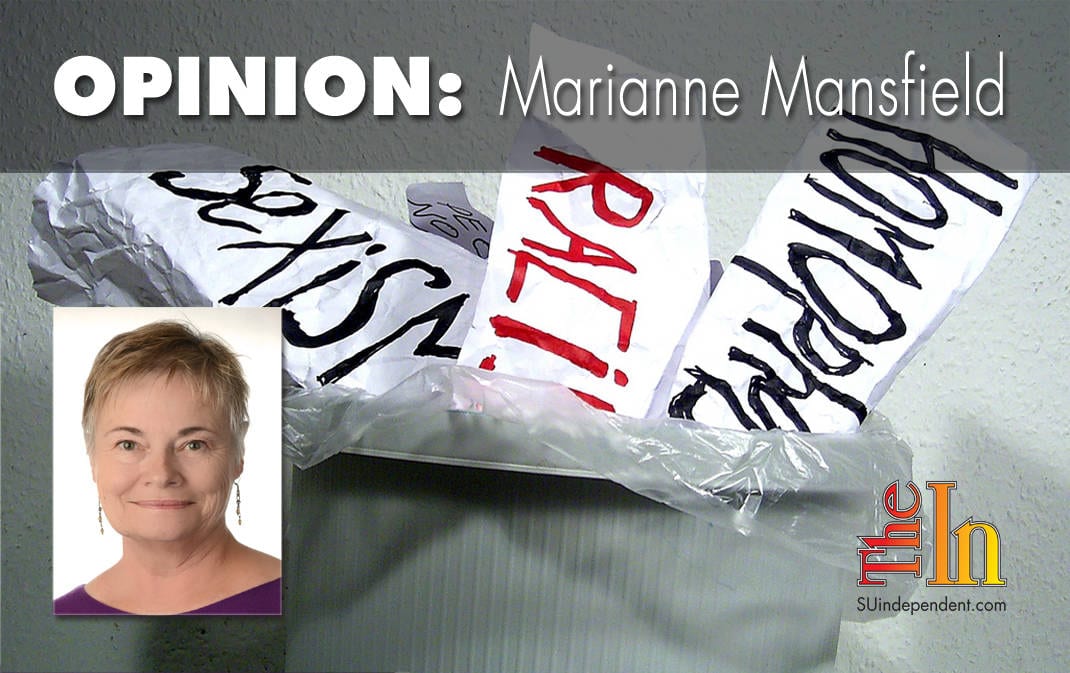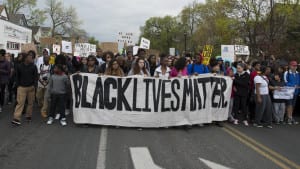
Black lives matter. Is it simply political correctness that has given life to that phrase?
Shouldn’t we, as a society of compassionate beings, endorse the stance that All Lives Matter?
Until I began to dig into the topic, I resided in the second camp: the All Lives Matter camp.
Now I better understand that it simply isn’t enough to say all lives matter, because to do so undercuts the growing recognition that racism is alive and well in this country of ours. Affirming that black lives matter today is imperative, made necessary by the overwhelming body of evidence that black lives have mattered less than white lives, not only historically but also in today’s political environment.
I am not here to malign the vast majority of police officers who do their job with compassion, skill, and bravery—those who perform not with a blind eye to the race of the people with whom they interact but with an understanding that individuals deserve to be treated as such. This isn’t about those folks. They deserve our respect and support. They certainly have mine.

But how does one account for the statistics compiled by Mapping Police Violence, a research collaborative collecting comprehensive data on police killings nationwide to quantify the impact of police violence in communities. For example, according to this website, black people are three times more likely to be killed by police, while 33 percent of black victims were unarmed. Compare that tho the 18 percent of white victims who were unarmed. Who among us is unaware of the high-profile cases of black youth being treated unfairly and sometimes losing their lives in the midst of that treatment?
It isn’t only in the arena of criminal justice that racism seems to account for unequal treatment. In 2014, the Robert Wood Johnson Foundation, the nation’s largest philanthropy dedicated to health, found that “Race and ethnicity continue to influence a patient’s chances of receiving many specific health care interventions and treatments.” Moreover, the foundation estimates that Latinos and African-Americans experience 30 to 40 percent poorer health outcomes than white Americans. This disparity leads not only to shortened lives and increased illness but also costs the nation more than $60 billion in lost productivity each year.
The figures are no better in the realm of K-12 education. In a 2014 report released by the U.S. Department of Education, black students get more punishment and less access to veteran teachers than their white peers. Though 16 percent of America’s public school students are black, they represent 27 percent of students referred by schools to law enforcement and 31 percent of students arrested for an offense committed in school, according to the survey.
Or there’s this: in 2013, the Pew Research Center found that the unemployment rate among blacks is about double that for whites and has been for most of the past six decades.
These examples I found in less than two hours of searching reputable sources. For as many as I included here, there were at least five times more that I didn’t use. No matter where you look, there is ample evidence that people are being treated disparately in this country based on nothing more than the color of their skin.
And then, on the evening of July 14, 2013, a young black woman, Alicia Garza, reacted in anger when she heard that George Zimmerman had been acquitted of murdering Treyvon Martin.
She tweeted “Black Lives Matter.” Garza described her emotions of that hot night as being filled with rage. She felt overwhelmed by this apparent injustice in the face of all the other injustices she had observed and experienced in her own life.

The phrase “Black Lives Matter” caught fire. It was taken up by protesters and by the media. It appeared on handmade signs and in the leads of articles in nearly every news outlet in the country. It has become the verbal icon around which blacks and concerned whites have coalesced in demanding that racism in America be recognized and dealt with once and for all.
But who am I to champion this cause? I am neither black nor young. I am, however, a woman. And as a woman I have experienced the sting of discrimination.
For example, while my healthcare insurance coverage is good, I am enmeshed in a system whose professionals have access to research that all too often is done exclusively with white male subjects. I’d prefer to be given a drug, for instance, the effects of which are well-documented for women.
In my younger years I attempted to buy a home, but as a single woman, I was forced to provide much more extensive documentation of my ability to pay. Although my initial paperwork was in order, the lender insisted I obtain a statement from my employer that I had a reasonable expectation of continuing to work there. A male colleague was buying a house at the same time. Although working with the same lender, he was not asked to supply similar documentation.
I was once told that the clothing I wore was not appropriate for the job for which I was applying. When I asked if a similar comment would be made to a male candidate, I was asked to leave the office of the interviewer. For the record, I was in a sleeveless dress. The interview was for an administrative position and took place in July in Michigan. It was over 90 degrees outside.
Is my experience with discrimination on par with the experiences of black males and females in this country? Of course not. It pales in comparison. But remembering how it felt to swallow my pride in my sense of self simply to accomplish my goal does, however, give me this: a contextual backdrop for understanding injustice. The nexus may be thin, but it is undeniable.
Facts are undeniable. Racism exists in America today. To minimize it by attempting to fold it up in a statement as ambiguous as “All Lives Matter” is to deny reality.
Black Lives Matter.




If black Lives Matter then vote for Ben Carson for president.
This article is foolishness, the news media including this writer have caused all the trouble
Regarding race relations and have set all people back 50 years, shame on this writer.
If we’re to carry a sign that said: WHITE LIVES MATTER. Would people think that I must think that black lives DON’T matter?